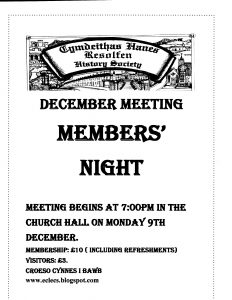Christmas Fayre

Family Auction

Fluenz and Fire Fighter Party
If you were unable to attend the ‘Fluenz and Fire Fighter Party’ on Wednesday 20th November but would still like to be immunised against Flu, please attend your regular baby clinic or contact the Surgery on 01639 505950 to book into a Nurse Appointment.
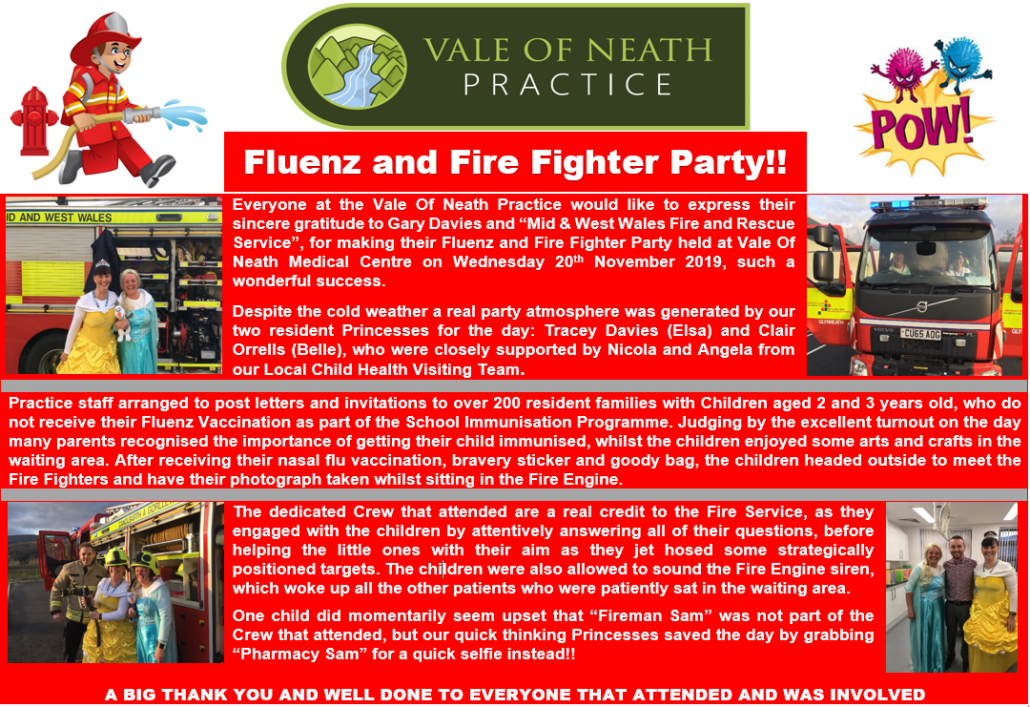
Information supplied by The Vale of Neath Practice
~ ~ ~
Milk Delivery
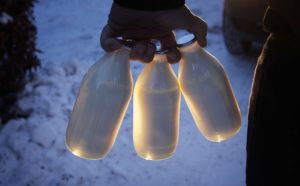 I have negotiated for Totally Welsh to start a milk delivery service in the Resolven, Abergarwed, Melincourt and Clyne area. This is a great way to reduce our plastic waste and go back to a more recyclable glass product. To start with they will be delivering Monday Wednesday and Fridays. If anyone is interested in having milk delivered could they please contact me at nealfrancis@hotmail.co.uk or 07784735055 and I can arrange for them to be added onto the round.
I have negotiated for Totally Welsh to start a milk delivery service in the Resolven, Abergarwed, Melincourt and Clyne area. This is a great way to reduce our plastic waste and go back to a more recyclable glass product. To start with they will be delivering Monday Wednesday and Fridays. If anyone is interested in having milk delivered could they please contact me at nealfrancis@hotmail.co.uk or 07784735055 and I can arrange for them to be added onto the round.
Neal Francis
Resolven Community Councillor.
A Report on the November Meeting of Resolven History Society– “Evacuees”
This month’s topic had been widely awaited by the members of the Society, since the story of the mass evacuation of children from the inner cities to the safer countryside is still within memory and equally poignant since the meeting coincided with the commemoration of the Armistice of 1918. However, Mr Peter Rees, who is a member of the Swansea Outreach Speakers of the History Association in Swansea, gave an insight which was perhaps different from the orthodox account of the lives of the evacuees themselves and the subsequent effect on social policy which is with us to this day.
Mr Rees began his talk by explaining how the policy of evacuation had its roots in the earlier bombing of the south of England during the Great War in which some thousand or so individuals had been killed by aerial bombing. The development of air forces during the 1920s and 30s, showed that the British Isles was now vulnerable to attack. This was highlighted by the Chinese invasion of Manchuria and the bombing of Guernica during the Spanish Civil War. The plan for the evacuation of children was drawn up as early as 1931 and explains how the evacuation took place so smoothly in 1939, in contrast to the lack of readiness of many other civil arrangements. Sir John Andersen (he of the shelter) was put in charge of the planning at the outbreak of war. The strategy was not short of critics, especially among women such as Anna Freud who saw it as inhumane and upper class (who sent their children away to boarding school in any case). It posed a terrible dilemma for parents and in fact only 50% of those children liable to evacuation actually left the inner cities, which were subsequently subject to the blitz. Indeed, other countries viewed evacuation differently. France dismissed it as a bad idea and Germany had a partial version. After the attack on Pearl Harbor, the USA considered it, but following a psychological study came to the conclusion that children were better left alone with their parents in terms of their mutual mental health. The Scots indeed, took a different tack and moved some parents with their children.
A billeting officer was appointed in the reception area to match the children to the families receiving them. He did have the power to force families to take evacuees but this did not happen often. Critics have described this process as a “slave market”, in which some of the children were seen as ready labour to work on farms or as “skivvies”. The experience of the children and the hosting families varied immensely, and it was quite evident that the children from the slum areas of inner cities found adjustment to their new homes very difficult. In Llanelli they were nicknamed “Sioni daps”, and an appeal from residents was made for better shoes. Some were emaciated, lice ridden and almost feral in the way they lived. This contrasted with the evacuation from more affluent areas which was sometimes greeted with relief by the local community as was reported in a story in the Tivyside Advertizer in Cardigan. At first the editor railed against an invasion of unruly children only to totally change his tune when he found out that it was a grammar school from the leafier suburbs of Liverpool that were coming. Wales indeed was seen as a very accommodating area for evacuation, with its strong social stability rotating around the chapel and family seen as a positive advantage. Indeed, many of the evacuees became very close to their adopted families, learned Welsh and even returned to live in Wales after the war. Many , subsequently wrote autobiographies on their experiences including Ken Fossegate, who had been evacuated to Cardiganshire and Beryl Matthews whose book “A Time to Remember”, narrated a harrowing tale of neglect by the local vicar, followed by a happier time resident in the local public house.
Education itself was a problem, in that the evacuees were taught by either old teachers on the verge (or recalled) from retirement or young and inexperienced (teachers were also called up as was the experience in Resolven school Ed). Sometimes the evacuees were taught separately from the local children or in a different building. In addition, it was common for whole school to be evacuated together and join a local secondary school (this was the experience of The Roan School in Greenwich, which was evacuated en bloc to Ammanford, Ed). Mr Rees, also stated that Swansea children were evacuated to Llanybydder following the blitz in the town and the destruction of Brynmill school, under the leadership of their teacher Mr Cooke Rees. Of course, they considered themselves to be different from the other evacuees since they still saw their parents. Parental visits were however rather problematic since quite often the children were so homesick they returned to Swansea with their parents. Indeed all the evacuees who had been interviewed after the war recalled the gnawing homesickness which never left them.
In conclusion, Peter Rees, drew attention to the fact that the evacuation of what were essentially slum children had metaphorically “turned over a stone of neglect”. Wales had been subjected to the 10% of the population which was unseen within inner cities. In 1943, the report “Our Towns”, highlighted the neglect of the inner cities. This contributed in no small measure to the Beveridge reforms undertaken by the post war Attlee government. The famous historian A.J.P. Taylor stated that it was the key to the establishment of the present Welfare State.
Following the war, the children returned home. However, this was not the end of the trauma. Some returned to find that their parents, who had not been in contact, were either both dead or widowed. Homes had been destroyed, and the psychological distress has been described as a double death. Sometimes parents were resentful, in that they did not recognise their children and criticised their different accents and ways. Some children actually made their way back to Wales after the war, married and stayed.
Following a lengthy question and answer session, it was rather emotional to find that several of the members (including the author of this report) were either the children of evacuees or had contact with the evacuees who had come to Resolven during the war. Indeed, one of the members is an evacuee whose family were evacuated to Aberdare and stayed after the war.
The Chairman thanked Mr Rees for a memorable talk which reminded him of the accuracy of the TV drama “Goodnight Mr Tom”.
Trefor Jones
Pantomime Time

ALL PERFORMANCE DATES ARE FOR DECEMBER
Clyne Remembrance Service
The Service of Remembrance at Clyne War Memorial on Sunday the 10th of November was conducted by Father Andrew Davies
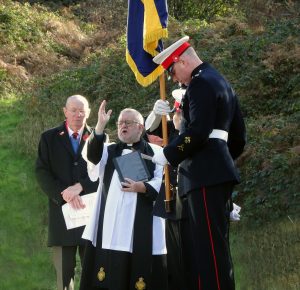
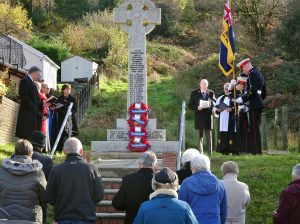
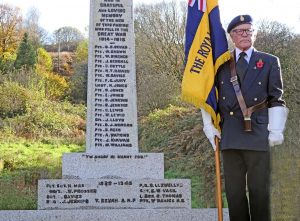
Flag bearer Ashley Philbrick-Resolven Branch Royal British Legion
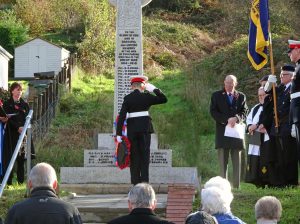
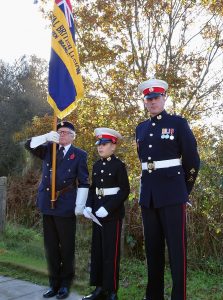

Pastor Peter Mitchell (Clyne Free Mission), Gillian Francis (Chair. Clyne/Melincourt Community Council), Moira Randall (Parish Reader), Karen Partridge ( Buglar)
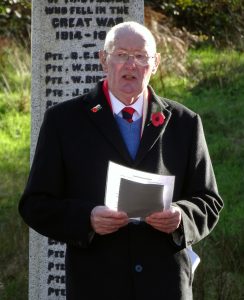
David Richards-Sec, Resolven Branch o f the Royal British Legion
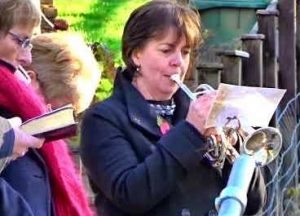
Buglar -Karen Partridge

IMAGES and VIDEO by MIKE DAVIES
CLICK BELOW FOR VIDEO
Remembrance Service in Resolven – Sunday 10 November 2019
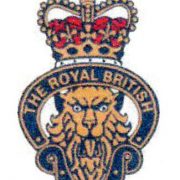
The Annual Remembrance Service was very well attended at St David’s Church Hall, Resolven on Sunday, 10 November 2019 and afterwards at the adjacent War Memorial Obelisk. The Service was conducted by Father Andrew Davies.
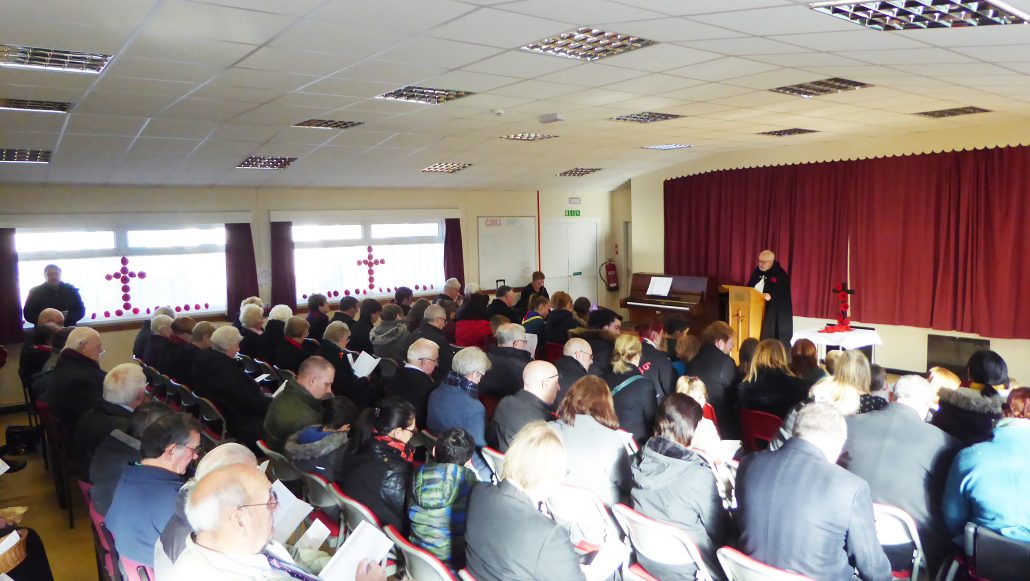
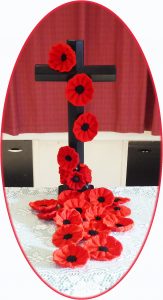
All the Poppies decorating the windows and Cross in the Church Hall 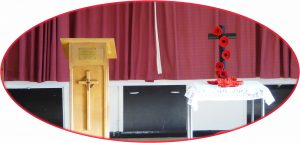 were designed and knitted by two of the ladies of the Church.
were designed and knitted by two of the ladies of the Church.
It was 100 years ago on 11th November 1919 that the first Armistice Day (now Remembrance Day) was marked in the UK. King George V had issued a proclamation calling for a two minute silence at 11.00am to remember the members of the armed forces who lost their lives in the line of duty.
The two minute silence was in fact adopted from a South African idea that had spread from Cape Town through the Commonwealth in 1919. The first minute was dedicated to those who died in the war, and the second to those left behind – families affected by bereavement and other effects of the conflict.
A Cenotaph was erected temporarily in Whitehall for a peace parade for Armistice Day in 1920.
After a tremendous nationwide response, it became a permanent structure, and in the following years war memorials were created in other British towns and cities.
In 1939, the two minute silence of Armistice Day was moved to the nearest Sunday to 11th November so that it would not conflict with wartime production. This tradition continued after World War II – Remembrance Sunday is still marked with a national service, and by special services throughout the country and beyond although the Americans mark Veterans Day instead.
Our War Memorial Obelisk in Resolven was unveiled on 1st November 1925 and attended by Lieutenant Colonel J Edwards Vaughan of Rheola. It was first erected on the Square, but it was moved several years ago to its present position due to the volume of traffic.
A new addition to the village this year was the large Poppies placed on many lamp-posts on the main roads through the village, reminding us of Remembrance Sunday.
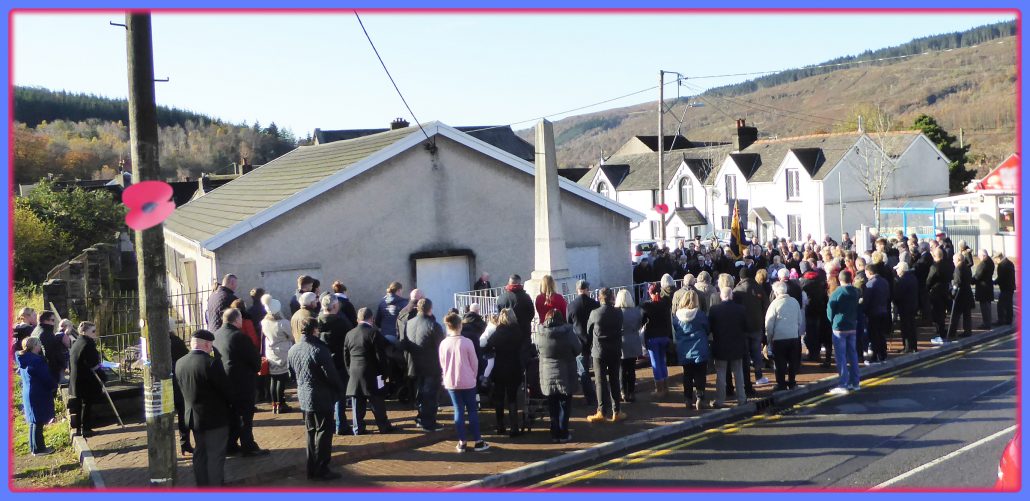
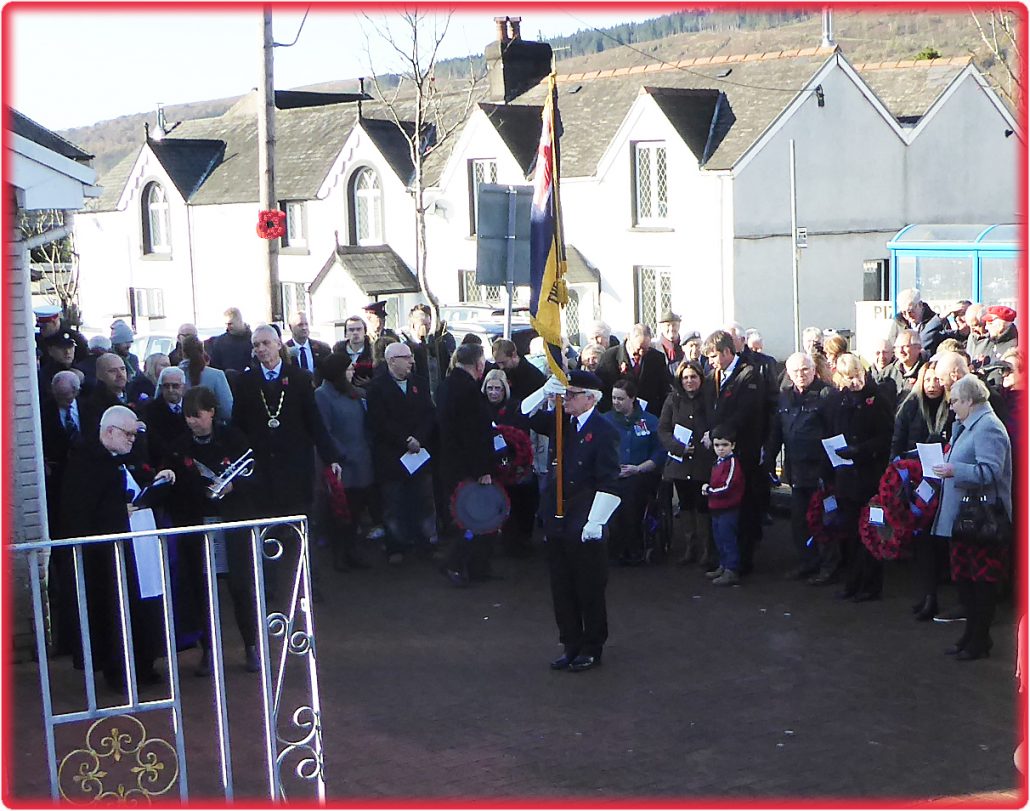
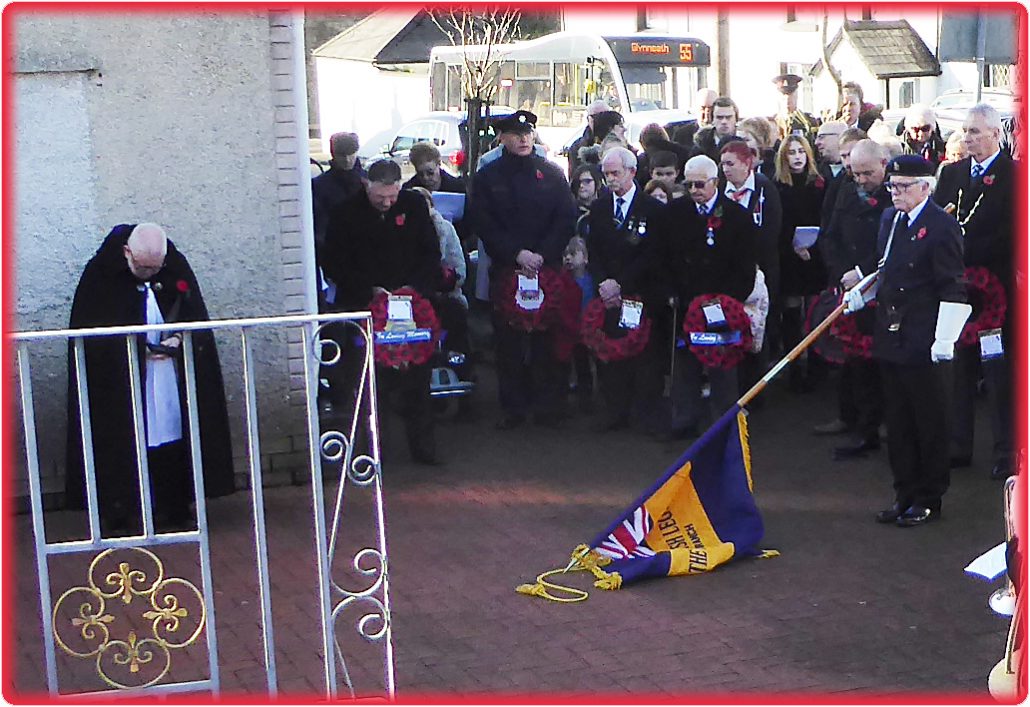
The Flag Bearer on behalf on The Resolven Branch of The Royal British Legion was Ashley Philbrick
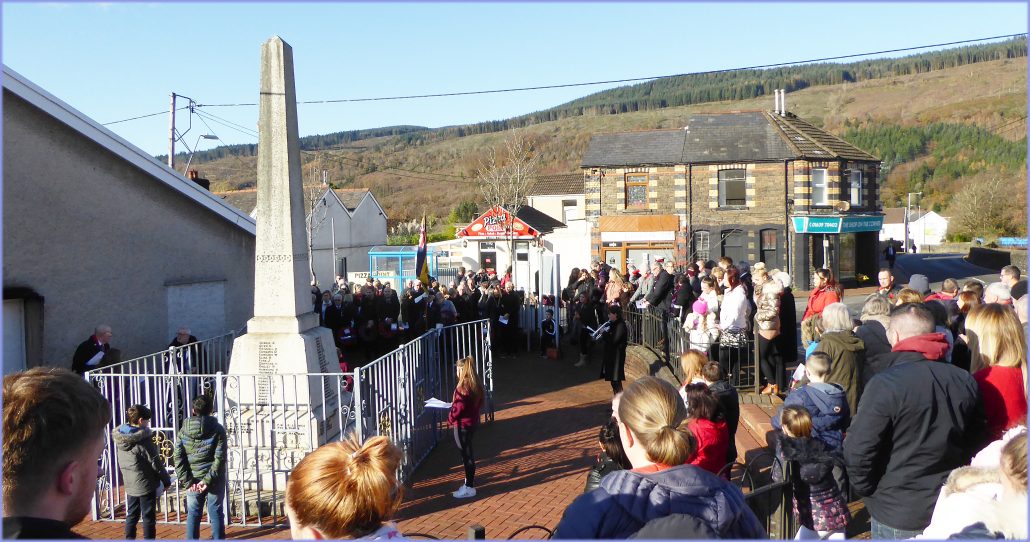
The ‘Last Post’ and ‘Reveille’ was played by Karen Partridge
Five children representing young people of the village read out all the names listed on the Obelisk.
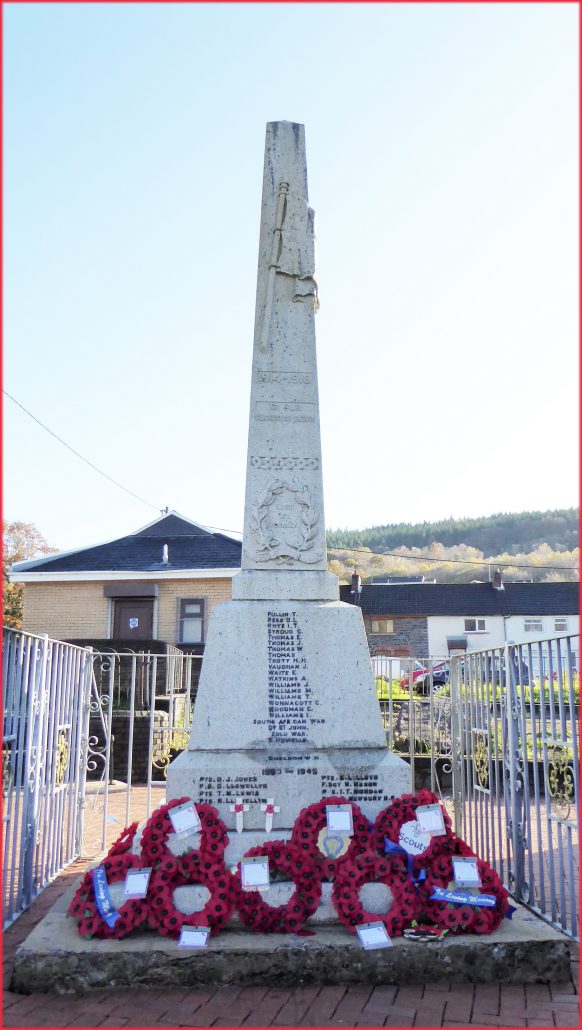
“WE WILL REMEMBER THEM”
~ ~ ~ ~
2019 Bowls Presentation Evening
Presentation Evening 2019 – Resolven BC and TRW Cam Gears BC
The 2019 Club Tournament Presentation evening for Resolven Bowls Club (RBC) and TRW/Cam Gears Bowls Club was held recently at the Resolven Community & Recreational Social Centre (the old Cam Gears Club) which was well attended by members and friends.

President/Chairman of RBC welcomed everyone to the Presentation evening which included some members of Resolven Ladies Bowls Club.
He congratulated all the bowlers, male and female who had played for the West Glamorgan County over the past season.
He also congratulated the RBC County Open Fours Champions, Shaun (Ned) Kelly, Gareth Evans, Mike Herbert and Nigel James and the Welsh National Senior Triples Champions Aylwin Jones, John Fryer and Spencer Evans (who played in the last four games in Llandrindod Wells, replacing Randall Sims).
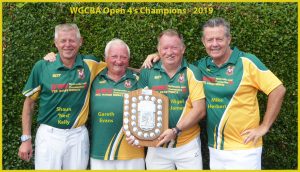
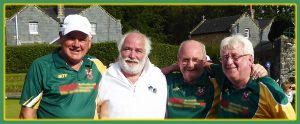
Lt to Rt: Aylwin Jones, Randall Sims, John Fryer & Spencer Evans
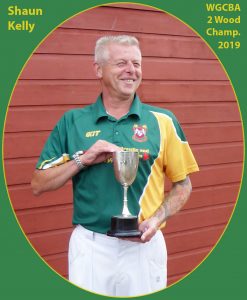
Shaun Kelly, West Glamorgan County 2 Wood Champion for the second consecutive year.
The summer of 2019 produced some great sunny days and dry weather which offered a good season for outdoor bowlers.
Speaking of the bowling green, the President said that the three Resolven Clubs are fortunate to have some hard working volunteers who are willing to give of their time and who have been working extensively and tirelessly on the Green over the year to be the best that it can be, and a green to be proud of. This is clearly shown by the good comments received from local and visiting bowlers.
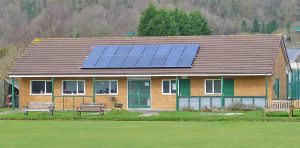
The Presentation evening continued with a buffet meal and this was followed by the sale of raffle tickets in aid of the Brain Tumour Charity.
Simon Ace, Resolven BC Hon. Secretary repeated that it had been a successful year with the club doing well in the Neath & District League and the Cwmtawe, Swansea Valley League winning the SVL Cup for the second time.
He gave an early congratulations to Carwen Thomas, Secretary/Treasurer Resolven Ladies Bowls Club for being elected to the position of West Glamorgan Senior Vice President for 2020 and therefore President for the 2021 Season.
Gareth Evans, lead bowling green volunteer and Secretary/Treasurer TRW/Cam Gears BC was invited to begin their presentations and he said that the club had had a good year and had completed their tournaments before starting early autumn work on the green. He called on Ieuan Ace the 2019 Captain to help with the presentations.
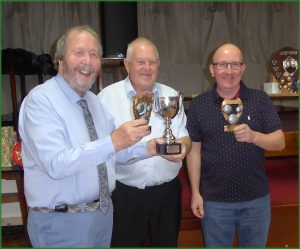
Winners of the TRW/Cam Gears Club Pairs – Alwyn Griffiths & Stephen Allen with Ieuan Ace.
(Finalists – Spencer Evans & Dave Pavey)
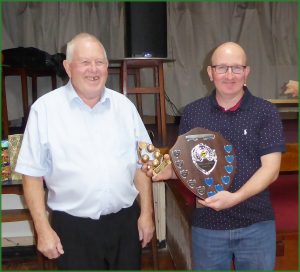
Stephen Allen – TRW/Cam Gears Club Singles Winner.
(Finalist – Gareth Evans)
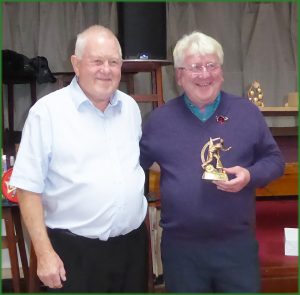
TRW/Cam Gears, Player of the Year, Spencer Evans, chosen by the 2019 Captain Ieuan Ace.
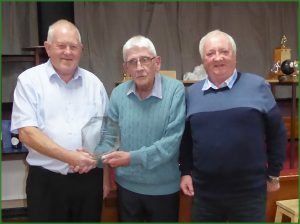
Lt to Rt: Ieuan Ace, John James & Gareth Evans
A Special presentation was made to John James who has given outstanding long service to TRW/Cam Gears Bowls Club mainly as Chairman.
~ ~ ~
The evening continued with the Resolven Bowls Club Presentations.
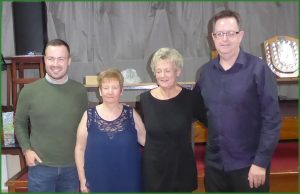
Carole Hopkins & Ann Ace receiving recognition for providing and serving the refreshments for RBC bowlers in Resolven throughout the season pictured with Andrew Hopkins & Simon Ace.
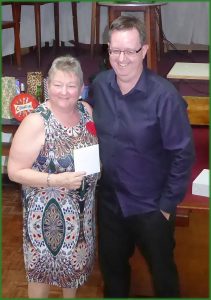
Janice Ace who was responsible for the refreshments on the night of the presentation.
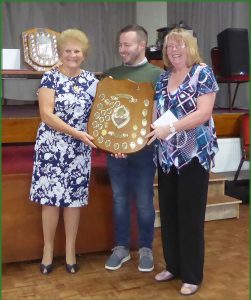
Brenda Rees & Christine Twaite who played bowls when required on several occasions with RBC during the successful retaining of the Cwmtawe/Swansea Valley Cup (Mid-Week Triples League). Shown with Andrew Hopkins and the winners trophy.
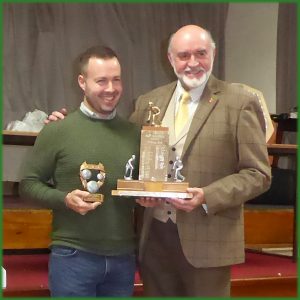
Hugh Lewis, RBC President/Chairman presenting Andrew Hopkins with the Ron Thompson Trophy as the winner of the Resolven Bowls Club 3 Wood Tournament. (Finalist – Lionel Stock)
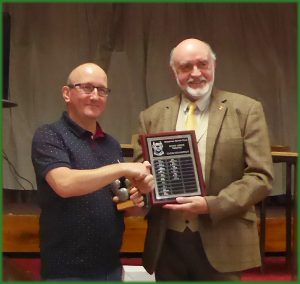
Stephen Allen, who is the RBC Club Champion for 2019 receiving the Hugh Lewis Trophy.
(Finalist – Simon Ace)
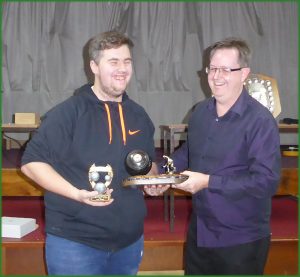
Troy Simms, RBC ‘Player of the Year’ as voted by the club members receiving the Omri Davies Trophy from Simon Ace.

The evening continued with a performance from entertainer/singer/comedian Kevin Kaye.
Congratulations to everyone who attended on the evening which raised the sum of £105. This is to be given to The Brain Tumour Charity and added to the amount that Andrew Hopkins has accumulated to date from running half marathons etc. which so far totals almost £1000.
~ ~ ~ ~
Fireworks from Mike


Images by MIKE DAVIES (RDN photographer)
Farmers Arms Resolven Planning Appeal
The new owners of The Farmers Arms public house in Resolven are proposing to convert it into a dwelling. Their planning application was narrowly rejected by Neath Port Talbot Council, by 5 votes to four. They have appealed against this decision and any objections to their appeal have to be made by November 18th. There is already a campaigning group in the village opposing the change of use for The Farmers Arms.
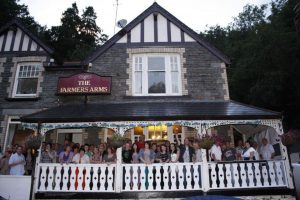
Resolven – AMENDED D.A.N.S.A. Transport for Vale of Neath Medical Centre Passengers
Resolven – AMENDED D.A.N.S.A. Transport for Vale of Neath Medical Passengers
From Monday 4 November 2019
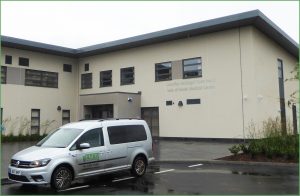
This is the Patient Transfer ‘D.A.N.S.A.’ bus near the front entrance of the Medical Centre, waiting to transport patients to and from the Medical Centre

Remembrance Sunday Services
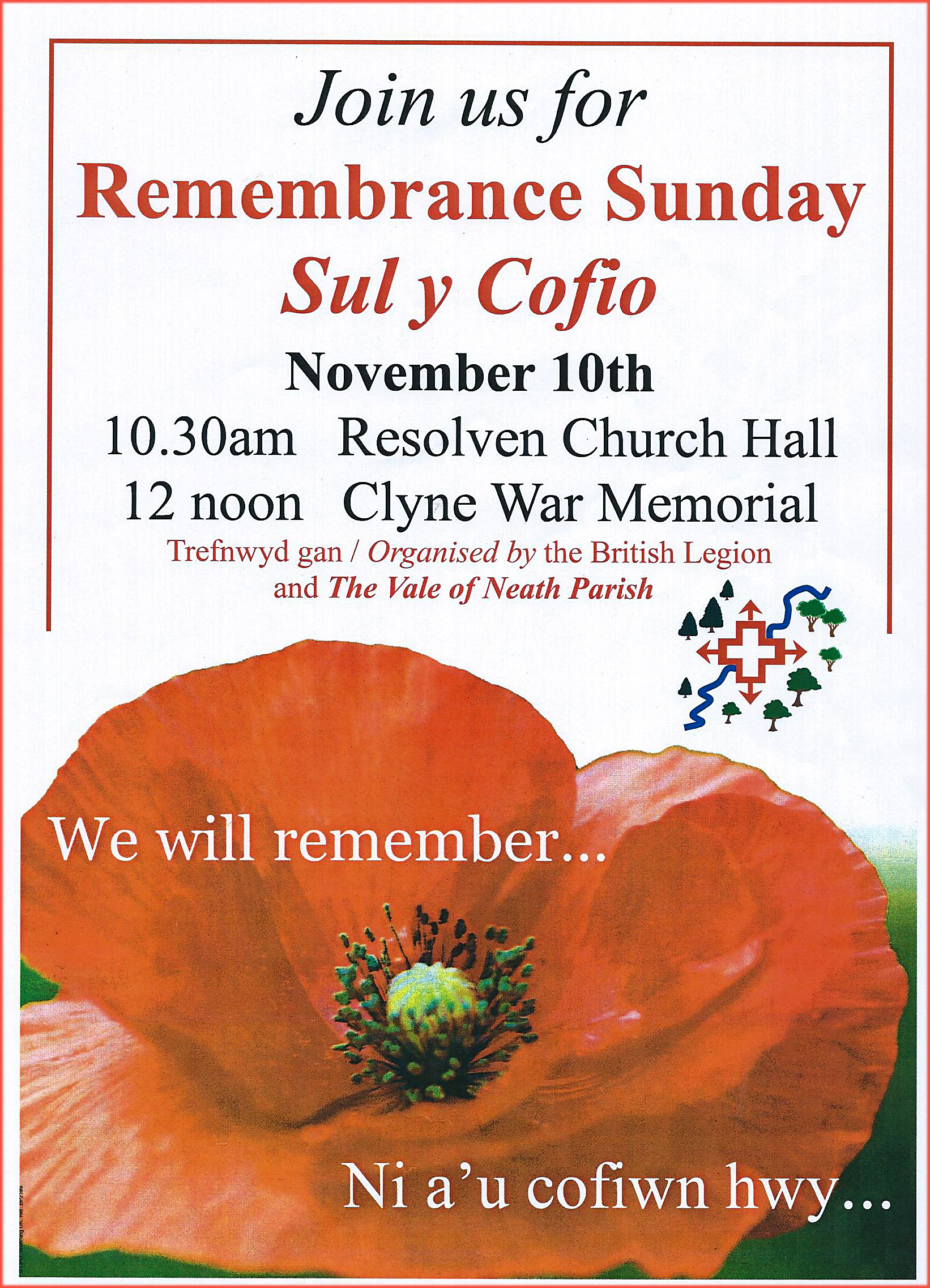
~ ~ ~


